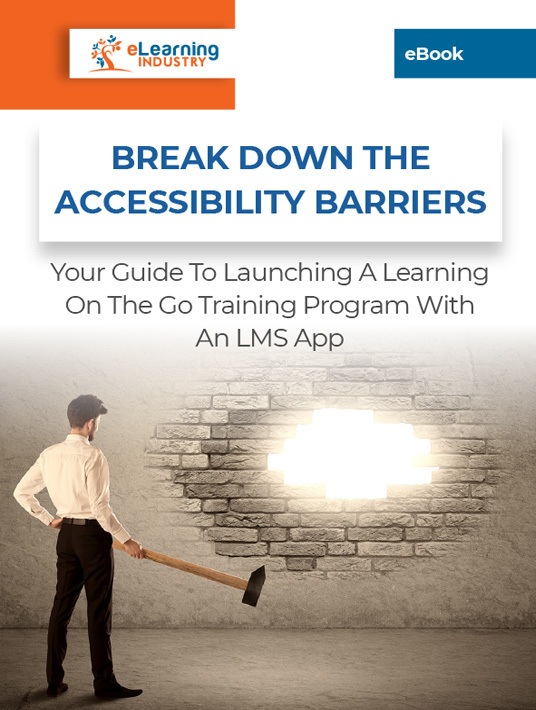6 Key Benefits Of Online Vs. Offline Learning
Online training can take various forms. It could be informal, sharing educational articles on the office WhatsApp group. Or it could be an in-house eLearning course designed via LMS. Or canned software in the form of a downloadable mobile app. Either way, it’s a significant shift from the typical 3-day seminar or one-week workshop. It’s clearly faster, cheaper, and more versatile; but what are the other advantages of ''portable training?'' Let’s take a look at the top benefits of online versus offline learning.

1. Lower Logistics
Traditional (offline) training often requires corporate gymnastics. You may have to shut down the office for a week and pay for everyone to attend the seminar, which is not necessarily the best for tight corporate budgets. Or you might need to divide them into ''training shifts'' which could multiply costs even further. Accommodation, venue rental, food, and transport are all expenses you can eliminate by providing online training. More importantly, you won’t have to synchronize everybody’s schedule into a single online training window. It’s easier for employees too, because off-site training creates additional challenges, like day-care, pick-up or babysitting.
2. Anytime-Anywhere Accessibility
Another benefit to consider when weighing online versus offline training is greater accessibility. Traditional training is usually isolated to one location, whereas online learning gives employees the power to access mobile support tools from any geographical locale. Then there are the perks provided by the other ''offline'' approach. Many Learning Management Systems now feature apps and downloadable content support, which means that your employees can get the information they need without an internet connection. As a result, they have more confidence in the workplace and can mitigate risks. For instance, they can quickly watch videos or tutorials that show them how to complete a task, instead of struggling through it and making costly mistakes.
3. Increased Confidence
Some of the smartest, most talented, and most successful people in the world still battle imposter syndrome. So, while you may not spot it, your star performers likely experience crises of confidence. Mobile learning helps them through it in a subtle, effective way. They can discreetly access JIT resources. Nobody has to know, not even the client or the boss. Of course, your IT team will know, because they review course analytics. And they’ve been keeping your company’s tech ''secrets'' longer than you think, so your team’s camouflaged insecurities are safe. In addition, an LMS with a mobile app or offline access allows you to gather more relevant data. For example, employees can report informal learning activities to receive credit, thereby giving you the chance to track their offline participation rates and develop online training activities that suit their needs.
4. Enhanced Personalization
Aside from group work sessions—which are rarely fruitful—traditional training is a blanket affair. Courses are led by a lecturer without the scope to monitor individual employees. They can’t even really measure knowledge transfer. Online training is sometimes said to be more isolating. But from a training perspective, it’s easier to track corporate learners. You can see which units they’re struggling with, how fast they finish, and/or when they lose interest. This shows you which areas of your eLearning course you need to improve. You can identify and craft online training courses for individual employees’ specifications. It ensures they all get maximum benefits from their eLearning course.
5. Expanded Variety
A seminar will generally cover a single topic. There may be sub-topics, but its nature means you can only focus on one subject area. And because of the expense and corporate disruption involved, training opportunities are limited. Small companies might do it once a month. With larger ones, it could be once a year. Online training can offer hundreds of eLearning courses that can be studied at the employee’s leisure. And they don’t have to train during work hours. They can pursue online training courses in traffic, at home, or even during their vacation if they want to. Instead of one workshop a year, an organized employee can do a new course every week. And they can do it on-the-go and on their preferred mobile device.
6. Greater Work-Life Balance
We tend to focus on the ''mobile'' aspects of online learning. But this portable quality has other advantages, too. You can study with your kids. You’ll all gather at the kitchen table, and they’ll do their homework while you do yours. These are benefits you don’t get from off-site seminars. In this sense, eLearning could become a tool for career progression coupled with family bonding, giving your employees the ability to achieve a better work-life balance, which improves overall satisfaction. Plus, the offline LMS component allows them to simply download the online training materials they need, then complete them at their leisure, instead of trying to rearrange their schedule around family commitments and internet connectivity time blocks. For example, they avoid mapping out Wi-Fi hot spots on their next business trip or personal vacation.
On-the-go learning does have distinct advantages over conventional face-to-face training. And an LMS with offline features provides even greater perks. So, what’s the plus side of learning on-the-go? It’s easier to plan around, so logistics are greatly minimized. Employees can read up discreetly, which helps their belief in their own abilities. You can tailor eLearning courses, right down to a single online learner. And you can offer hundreds of eLearning courses instead of just one. Finally—and most importantly—it’s convenient, both for individual corporate learners and the organization as a whole. And it costs less too!
Are you looking for an on-the-go LMS that provides anytime-anywhere support to your entire team? Download the eBook Break Down The Accessibility Barriers: Your Guide To Launching A Learning On-The-Go Training Program With An LMS App to discover secrets to use microlearning and mobile learning apps to improve knowledge retention on-the-go.

